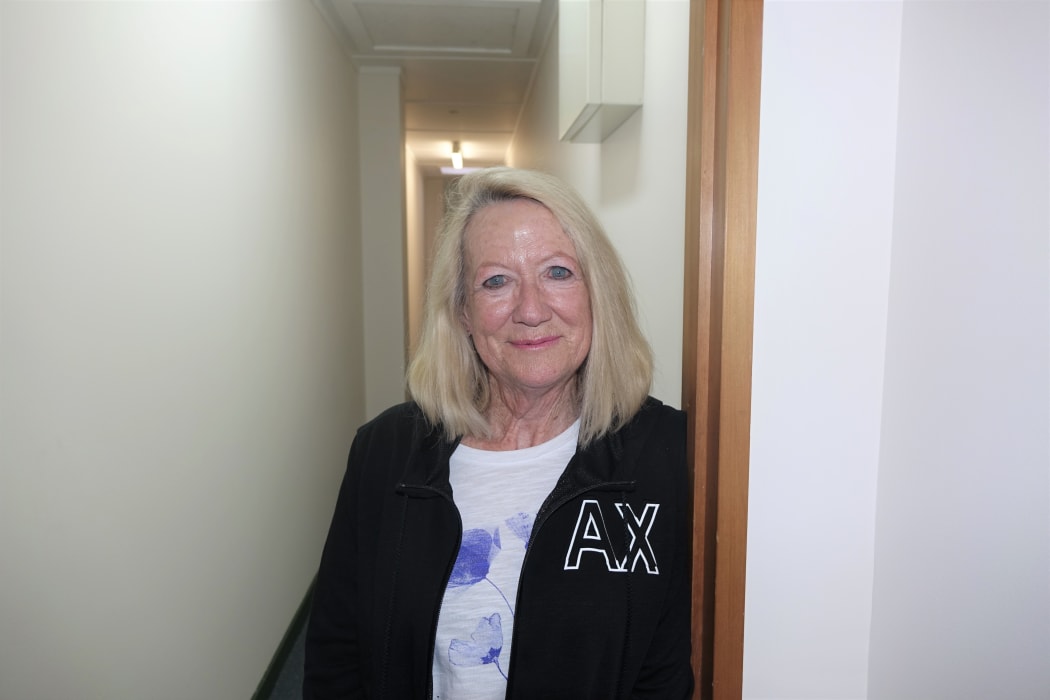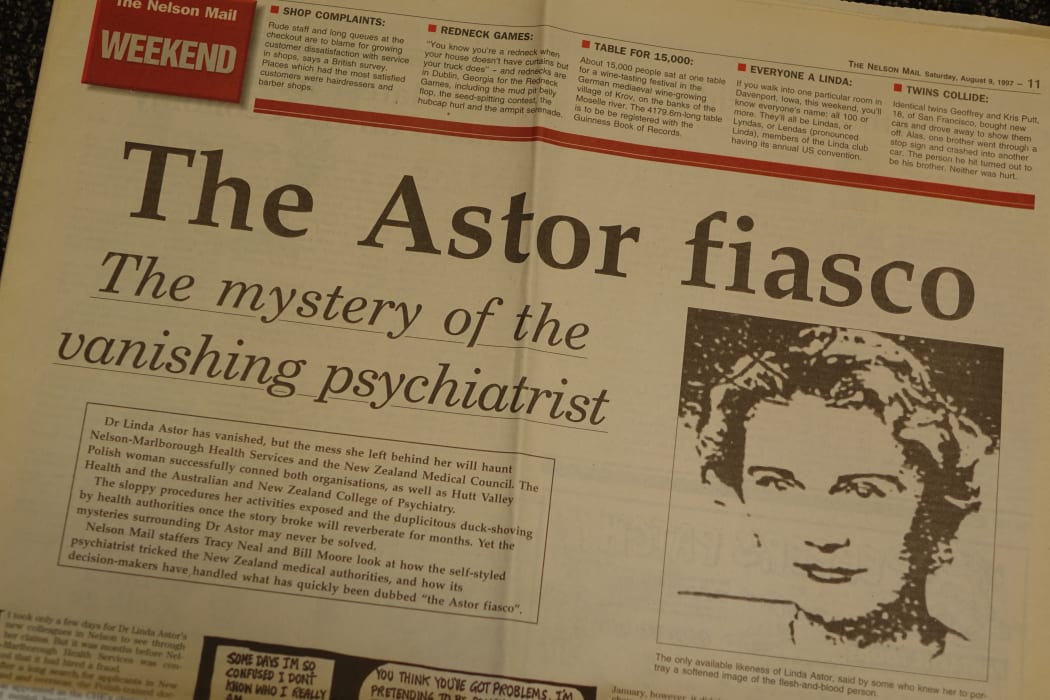The Medical Council says the chances of a pretend doctor working in New Zealand are not impossible, as a psychologist speaks out for the first time about a bogus practitioner.

Nelson psychologist Robyn Byers. Photo: RNZ / Tracy Neal
The council's comments come after the discovery of fake psychiatrist and Auckland medical school drop-out Zholia Alemi, who had worked for more than two decades in the UK.
There has been similar incidences in New Zealand - most recently in 2015, but most notoriously in 1997 when a fake psychiatrist, known as Linda Astor, tricked authorities to become head of clinical psychiatry at Nelson-Marlborough Health.
In a first-ever interview since then, a Nelson psychologist Robyn Byers describes what it was like to work with Astor, who she described as tall, blonde and partial to wearing short skirts and size 11 high-heeled shoes to work.
Ms Byers was at the time district manager for mental health and addiction services at Nelson-Marlborough, and said meeting the transgender Polish national for the first time was simply unforgettable.

Photo: RNZ / Supplied
"She was well presented in a beautiful suit, lots of gold jewellery, her hair done up bouffant style ... she was a very attractive woman that a lot of the staff ... responded to."
Astor arrived in Nelson in January 1997, with glowing references from Hutt Valley Health, where she had started the year before as a consultant psychiatrist.
Ms Byers was dubious from the start.
"Because she didn't ring true and I had concerns, not so much about her qualifications at that point, but who she was presenting herself as."
Efforts by Ms Byers, and an investigation by The Nelson Mail in 1997 revealed Astor's psychiatry qualification was fake, and that she had lied about many places overseas where she had claimed to work.
The medical malpractice whistle-blower Phillida Bunkle was an Alliance MP and health spokesperson at the time. She was contacted by co-workers at Hutt Valley, disturbed by Astor's management of patients.
They included her releasing a patient from treatment, who then murdered his partner.
Ms Bunkle was stunned by the employer's failure to act.
"She had failed to identify how sick somebody was, who was a real threat and who had actually killed their wife, or partner in the most bizarre circumstances."
Ms Bunkle said health authorities hid behind patient confidentiality and made it difficult for her to investigate the case.
"There is, and remains a major issue about patient confidentiality but it was being used at the time to protect the professionals."
Robyn Byers moved quickly to limit Astor's involvement with patients.
Then Astor made a couple of mistakes.

Photo: RNZ / Supplied
She left an application for personal finance lying in the work photocopier, which Ms Byers says was evidence of her growing debt levels.
And then Astor gave the staff work car to her husband.
"So she was using a work car, which was part of her contract, and then she arrived at work in a brand new Jaguar.
"My office was looking out on to the car park and I immediately wondered where our car was."
The New Zealand Medical Council said much had changed since then. Chairperson Andrew Connolly said the internet had made a big difference.
"So many more overseas agencies hold electronic data, and our ability to search names and literally Google search someone is significantly better.
"Probably the most significant change has been the introduction of primary source verification."
Mr Connolly said major change occurred in 2003 with the introduction of the Health Practitioners Competency Assurance Act, which regulated all health workers.
He said it had helped to reduce the risk of forged qualifications, but the risk of identify fraud remained, because keeping ahead of fraudsters was always difficult.
In 2015, Mohamed Shakeel Siddiqui stole the identity of a real psychiatrist and was hired by the Waikato District Health Board.
Mr Connolly was confident the reference and qualification checks were robust, but added: "Can any process be utterly failsafe and I think the answer is no, but the gaps in which people can get through are very, very small now."
As scrutiny intensified on Linda Astor she took a health board-funded trip to France for a conference. Ms Byers tried to stop her leaving.
"So unfortunately Linda got on the plane, and didn't come back."
Astor was sacked within weeks of leaving.



